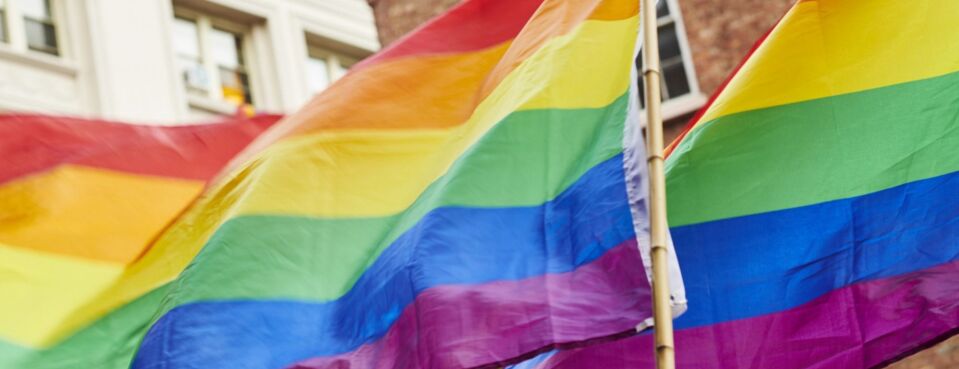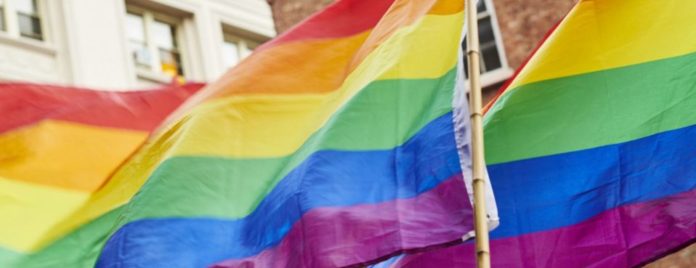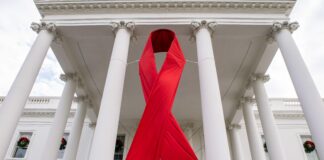
New guidance from the Biden administration to protect LGBT people from discrimination in health care is likely to collide with the strongly held religious beliefs of some doctors and the federal law in place to protect them.
Under Section 1557 of the Affordable Care Act, doctors and insurers that receive federal funding are prohibited from denying a person care or health coverage based on their race, color, national origin, sex, age, or disability.
In announcing the new administration will be interpreting the word “sex” in Obamacare’s anti-discrimination rules to include sexual orientation and gender identity, the Department of Health and Human Services Office for Civil Rights said it will comply with the Religious Freedom Restoration Act (RFRA) and applicable court orders that stopped the government from forcing certain religious medical providers to treat transgender people.
But advocates for religious freedom aren’t buying it.
The HHS is actively trying to get these very rulings overturned in court, said Luke Goodrich, vice president and senior counsel at the Becket Fund for Religious Liberty. “It’s sort of like taking back with one hand what they’re purporting to give with the other,” he said.
The notice from HHS tees up a fresh fight over how to balance protections for lesbian, gay, bisexual, and transgender people with protections for health-care providers with deeply held religious beliefs. LGBT people want to seek medical care without fear of discrimination, but some doctors say they don’t want to be forced to perform procedures that violate their beliefs.
Ryan Bangert, senior counsel and vice president of legal strategy at Alliance Defending Freedom, said the Christian nonprofit advocacy group is evaluating its legal options in response to the HHS guidance.
“I think there are some very troubling things about the way HHS went about making this announcement from a procedural perspective,” he said.
Ongoing Litigation
The scope of anti-discrimination protections under Section 1557 of the ACA is already the source of ongoing litigation.
The HHS is in the process of appealing an order from a federal district court in North Dakota that blocked it from forcing Catholic health-care providers to perform and employers to cover procedures related to gender transition. However, that order only applies to the Catholic health-care providers involved in the lawsuit.
A separate group of religious medical providers, which had been fighting the agency’s 2016 interpretation of sex, plans to ask Judge Reed O’Connor in the U.S. District Court for the Northern District of Texas to permanently block the administration from enforcing its current interpretation when the group files supplemental briefing in the case on Friday.
“I think the administration is trying to have its cake and eat it too,” said Goodrich, who’s representing the providers in the Texas case. “It basically wants to adopt an extraordinary broad interpretation of Section 1557 and also wants to try to avoid being bound by an injunction and these court rulings.”
RFRA was passed by Congress in 1993. It seeks to prohibit the government from substantially burdening a person’s exercise of religion unless it’s to further a compelling government interest and it’s done in the least restrictive way possible.
What it means to comply with the law is hotly disputed.
High Court Guidance
Historically religious exemptions to federal laws under RFRA were made on an individualized case-by-case basis. But “it’s been turned on its head and now there’s this argument that it allows for and in fact requires big, broad exemptions for religious entities from otherwise generally applicable, neutral laws, including 1557,” said Katie Keith, a health law professor at Georgetown University.
In Burwell v. Hobby Lobby Stores Inc. in 2014, the Supreme Court ruled Obamacare’s mandate requiring for-profit religious companies to cover contraceptives violated the RFRA, but it didn’t strike down the requirement. Even assuming the government has a compelling interest in guaranteeing cost-free access to contraceptive methods, the court said, there’s a less restrictive way to do it. The government could extend the accommodation it already gives religious nonprofit organizations to nonprofit employers with religious objections, the justices said.
Last year the high court made it easier for employers to refuse to cover birth control in their employee health plans. In a case brought by Little Sisters of the Poor Saints Peter & Paul Home, the Supreme Court upheld new rules that let employers who object on religious or moral grounds to opt out of the contraceptive mandate.
“If the courts are going to follow the Supreme Court’s guidance from the Hobby Lobby and Little Sisters of the Poor cases, I think they have to rule that RFRA prohibits HHS from forcing religious doctors and hospitals from violating their conscience and experienced medical judgment,” Goodrich said.
But some health law scholars say religious groups are making more extreme claims for religious exemptions while disregarding the government’s anti-discrimination interests, and in some cases and among some justices, Christian legal groups are gaining ground.
“I would go so far as to say, if you look at these cases there’s been an erasure of the interests at stake for the anti-discrimination law,” said Brietta Clark, a law professor at Loyola Law School at Loyola Marymount University, who specializes in health care and discrimination.
“There’s virtually no analysis” of what the discrimination is that’s happening and the harm its causing, she said.








